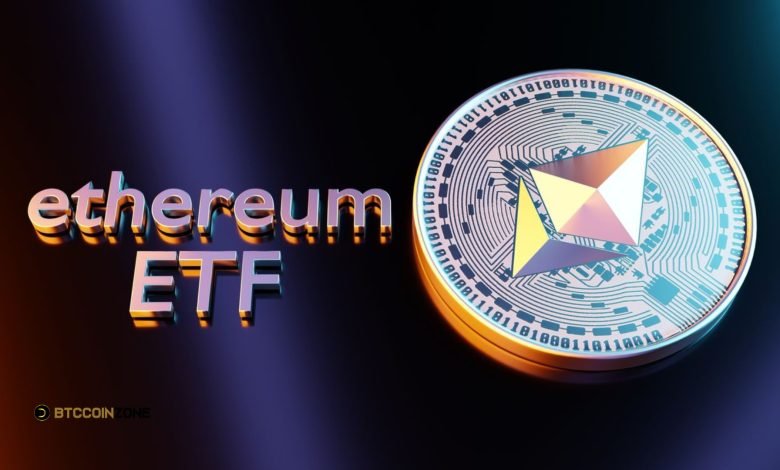SEC Reviewing Key Approval Filings for Spot Ethereum ETF

The US Securities and Exchange Commission’s 19b-4 regulation changes may be made more accessible by spot Ethereum ETF this week. It is possible that the licensing of these ETFs will be a watershed event in EthereuEthereum’sy toward broader acceptance. However, more delays could be in store due to outstanding regulatory difficulties.
Before spot Ethereum ETFs may debut on Wall Street, the SEC must approve two crucial components: S-1 registration statements and 19b-4 filings. These spot ETFs would differ from futures-based ones in that they would store Ether and trade on stock exchanges like any other stock. This would allow them to track price movements.
Main stock markets like the NYSE or Nasdaq ask the SEC for the 19b-4 filing. They are requesting authorization to modify existing regulations or introduce new products, which in this case involves the listing of Ethereum ETFs. With the SEC’s aSEC’ sal, the exchanges want to add these new financial products to their trading platforms.
SEC’s RSEC’s Process for 19b-4 and S-1

As a thorough reference for prospective investors, the S-1 registration form provides an in-depth examination. This document provides the SEC with comprehensive information about the ETF, including its structure, management, and investment strategies, focusing on its goal of monitoring EthereuEthereum’s fluctuations. The SEC must receive the 19b-4 and S-1 forms before any Spot Ethereum ETF can lawfully advertise to investors.
The initial decision-making period for the 19b-4 submissions is usually 45 days. Nevertheless, an extension of up to 240 days is possible upon request. Listing the exchange-traded funds after these documents are approved will be possible. The S-1s, however, are complex. Even if the S-1 review procedure is slowed down and the 19b-4s receive clearance from the SEC, the debut of these ETFs could still be delayed.
A fundamental problem, the SEC’s sSEC’s strategy, is brought to light by this potential delay. Given the complexities and hazards associated with crypto products, the SEC may be more cautious, as there is no direct communication between the ETF providers and the regulatory body.
Impact of SEC Decision on Ethereum
There is a lot of weight behind the SEC’s secant. The approval of Spot Ethereum ETF has the potential to revolutionize the cryptocurrency industry by providing a regulated and safe way for investors to participate, which in turn might accelerate Ethereum’s stream adoption.
With the introduction of Ether ETFs, the price of Ethereum has surged by 4.42%. Last week, it was presently trading at $3,102. If the SEC gives the go-ahead for an Ethereum exchange-traded fund, the price of ETH might surge to $4,000 or higher.
However, delays or rejections of these ETFs by the SEC will demonstrate. Concerns regarding the safety and reliability of Bitcoin investments persist. A drop in the price of Ethereum might result in investors. They are losing interest in the cryptocurrency if this were to happen.
[sp_easyaccordion id=”2610″]




